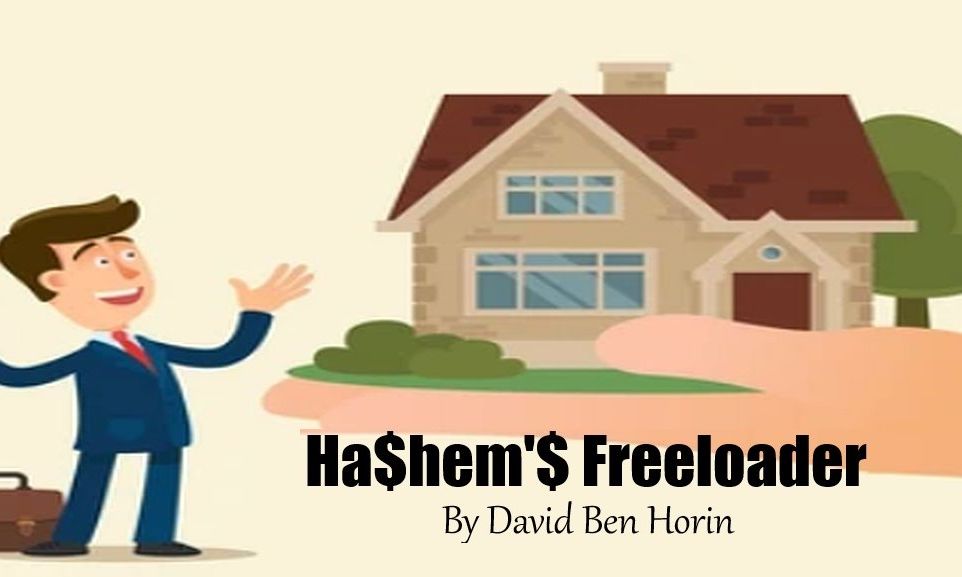
Hashem’s Freeloader
The word “freeloader” conjures up negative images, yet we are all freeloaders to an extent. What’s the right way and the wrong way to freeload...

One of my friends asked if he could stay with me for a while. He hasn’t worked in 20 years and goes from person to person staying with them for as long as they have the patience.
I had to say no. I knew that the moment he arrived at my doorstep he would never leave. He would take as much as he could from me, not say thank you, and even make me feel bad because I am causing him to be homeless!
Whenever I tell him that he can find work, rent an apartment, even share something with a group of people until he gets on his feet, he shakes his head and walks away.
It angers me to the core. I work so hard to make ends meet and he does nothing. He even holds my humanity hostage by warning of what will happen to him if I stop letting him extort as many freebies as he can at my expense.
When something angers you to the very core of your being, it means that you could doing something similar. My anger was aimed at myself more than my friend.
Am I a Freeloader?
For the past 46 years, Hashem has hosted me and my family in His home – this world. He gives me and my family all the free food we want. He gives us two healthy places to live: our bodies and our apartment. He gives us money. He gives us air.
He gives us life.
Duties of the Heart teaches us that if any of us were to combine every good act we did for Hashem during our entire life, it wouldn’t add up to even a single good deed He does for us.
Like my friend, my freeloading is endless. There is no point where I can say, “You’ve been a great host, I’ll take it from here.” There never is that “It’s only until my apartment is painted – I’ll be out of Your way in three days.”
All of the actions we engage in to provide for ourselves is an illusion. It all comes from Hashem.
Perhaps I should have considered that when talking to my friend.
What if I am a Freeloader?
If I were in a situation where I had to live off a friend, what would I do?
Say thank you. If I were living at someone else’s expense by eating their food, sleeping in their home, using water, electricity, gasoline for their car and other things that cost more with my presence, I would make a point to say thank you to them every day.
Compensate in other ways. I can take out the garbage every day. I can do the dishes after every meal. Keep my room clean. Make sure to find a place to be when they want to do things “as a family” without feeling awkward about asking me to disappear for the afternoon.
Never complain. I would be very grateful for all they are doing for me and never show ingratitude. The understanding is that if I need anything beyond what they are already giving me, I should try to get it myself.
Work hard to change things. I can spend at least 2 hours with the classifieds open. I can save my money, look into other housing options, tell them every day at dinner what I did to try to change my situation. As long as they know I am doing everything I can to move on, they will feel relief. The worst thing a freeloader can do is to openly demonstrate that he is doing nothing to change the current situation. He makes his hosts feel that this is not the temporary situation he promised.
What Can be Done
If I am Hashem’s freeloader, here is what I can do:
Say Thank You. Every day, Modeh Ani Lefinecha (I thank You) must take on new meaning. Every day, I have to say “Thank You” to Hashem. He is giving me everything as a pure act of compassion. A smile says “Thank You” to G-d. Being happy all the time by smiling as much as possible is an ongoing message to my Host that I am grateful for what He is giving me. Happiness says “Thank You” for what He is doing in my life!
Find ways to make life easier. How do you make life easier for Hashem? The only thing I can think of is to donate to Kiruv organizations which bring Jews closer to Hashem. Increasing our emunah also performs great healing to the world. Focusing on these can make G-d’s world a better place and give Him nachas (pleasure, satisfaction).
Never complain. Imagine spending all day cooking a 5-course meal for a friend who has stayed at your apartment for the past month and his only reply is, “The meat was under-cooked. The soup was too cold. The ice cream too warm. Next time you take me out, okay?”
That’s why sadness is considered the worst sin. Studies show that 80% of the things we worry about most in life never materialize. When we have no reason to feel anything, it is a Service of Hashem to smile. To be happy. To reflect on everything we have that we did nothing to gain.
Make sure it’s for something. We learn Torah. We give tzedakah. We work on our character traits. We teach others. We strive to be a walking sanctification of Hashem’s Name. We pray.
All of these mitzvot are ways of communicating to Hashem that we won’t be freeloaders forever. We are doing what everything He gives us is meant for. We are saying that at the end of our stay in His home, we can merit to go to a higher level in the Next World that validates what He gives us in this world.
We work as hard as we can to make sure that everything G-d does for us is not in vain. We make sure that every moment we live off His kindness is worth the deed.
* * *
David Ben Horin lives in Afula with his wife and children. Since moving to Israel in 2002, David has discovered Torah, writing hi-tech, hiking, coding ReactJS Apps, and hearing stories about the Land of Israel from anyone excited to tell them. Check him out on Highway 60 or email him your favorite Israel story at: david.ben.horin@spreadyourenthusiasm.com.


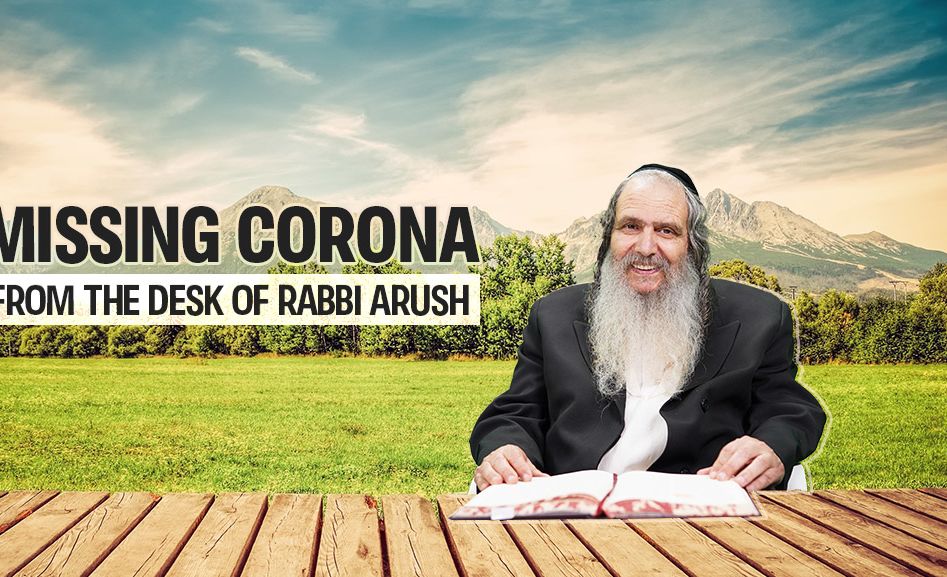



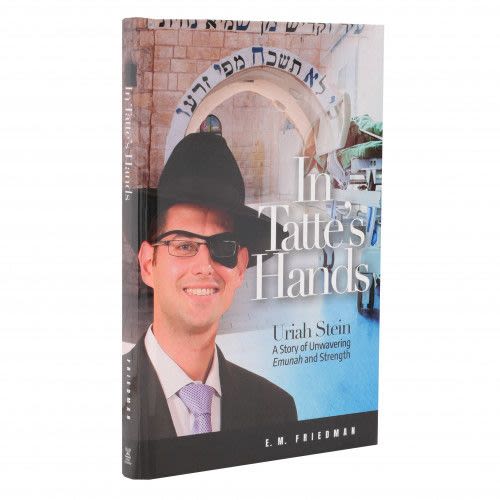
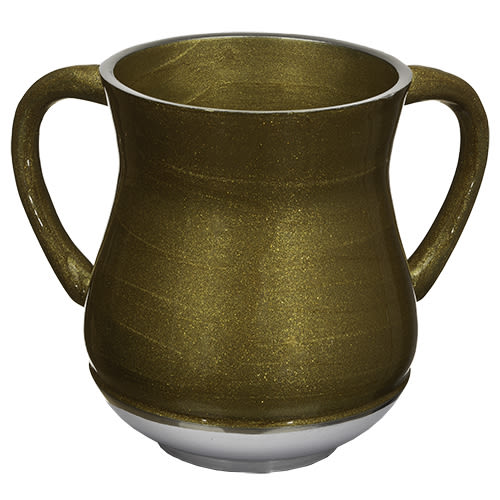


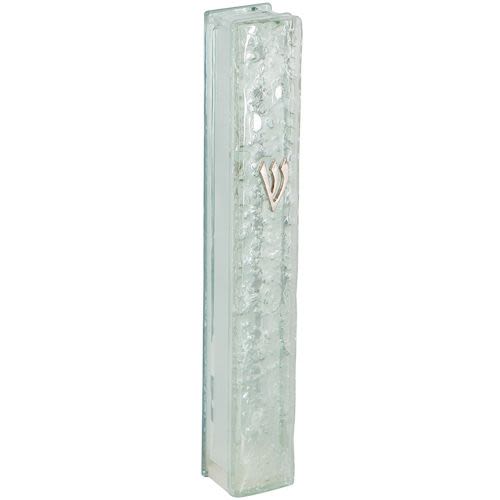
Tell us what you think!
Thank you for your comment!
It will be published after approval by the Editor.